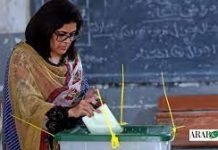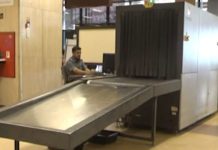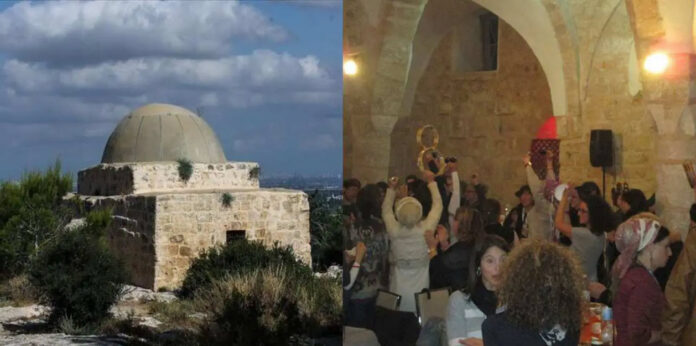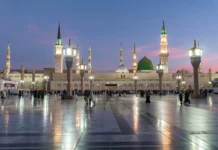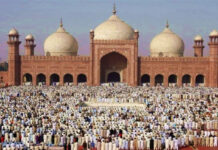In 1743, the Ottoman-era ruler of Palestine, Zahir al-Umar al-Zaydani, built a mosque in his name in the northern city of Tiberias.
The Umari Mosque remained a magnet point for worshippers until 1948. It was abandoned after the Nakba. Nakba is a term used by the Palestinians to describe the creation of the state of Israel on the rubble of Palestine,
Mosques turned into bars
One of the landmarks of Tiberias, the mosque, also known as the Zaydani mosque.
“Like most Palestinians, the Tiberias residents have fled to Syria and Lebanon following the Nakba,” Kamal Khatib of the High Follow-up Committee for Arab Citizens of Israel, told Anadolu Agency. “The Zaydani family, however, moved to the adjacent city of Nazareth,” he said.
Khatib said the Zaydani family had asked the Israeli authorities to give them permission to renovate the Umari mosque.
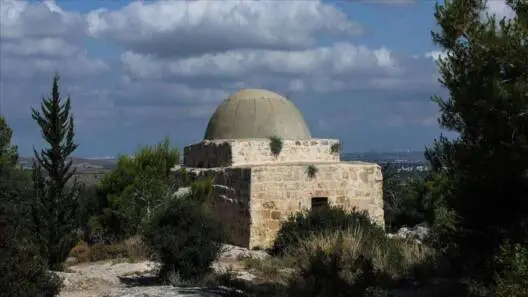
Israeli authorities have closed the mosque for worshippers and visitors.
According to Israeli figures, there are around 1.5 million Palestinians living in Israel.
A study prepared by Khatib revealed that Israel has turned 15 mosques into Jewish synagogues.
According to the study, 40 mosques were either destroyed, closed, or abandoned. Meanwhile, 17 were turned into barns, bars, restaurants, or museums.
For example, the Al-Ahmar Mosque in the northern town of Safed is now a concert hall. Meanwhile, Al-Jadid Mosque in the city of Caesarea is now a bar, according to the study.
The Ayn Hawd Mosque in Haifa and the upper floor of Al-Siksik Mosque in Jaffa suffered a similar fate.
“After the Nakba, Israel destroyed around 539 Palestinian villages,” Khatib said. “All Palestinian structures, including mosques, have become an easy prey to the Israeli authorities.”
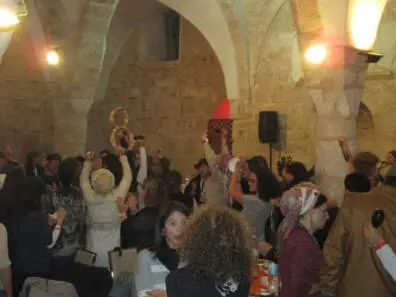
Khatib recalled that mosques in the pre-Nakba era were teeming with worshippers. “After the Nakba, however, mosques were destroyed in villages. Other mosques became synagogues, bars, museums, cafes or restaurants.”
Israeli policy & Muslims
Khatib said the Israeli policy “disregards the sentiments of Muslims”, citing the al-Isaaf cemetery in Jaffa.
Khatib said Israeli authorities have enacted legislation to seize the property of Palestinians, who fled their homes.
“Israel’s parliament passed the law of absentees, under which Israel confiscated buildings and property of Arab citizens [who left their homes to other areas],” he said.
Khatib said Palestinians have made repeated attempts to “regain, renovate and stop assaults on mosques”.
Israel denies the accusations
Israel denies the accusations of using mosques for other purposes than worshipping.
In October 2015, the Israeli Foreign Ministry said there were around 400 mosques in Israel. The number of worshippers doubled five times over the past 25 years.
The ministry said Israeli authorities allocate millions of shekels to construct worship places for Muslims living in Israel. It cited the government funds more than 100 mosques and pays the salaries of their imams.
Khatib, however, dismisses the Israeli claim. “The Israeli government has never built a mosque in the country’s history”.
“Our people built all the mosques, who collect donations to construct their worship places,” he said.
“The imams of these mosques get their pay from the mosque committees, which collect donations to pay for the requirements of the mosques.”
Israel and UAE have recently signed a historic deal to normalize relations. Bahrain has also followed the same path and normalizes relations with Israel. Palestine and the Muslim world have rejected both the deals.
What do you think of this story? Let us know in the comments section below.







